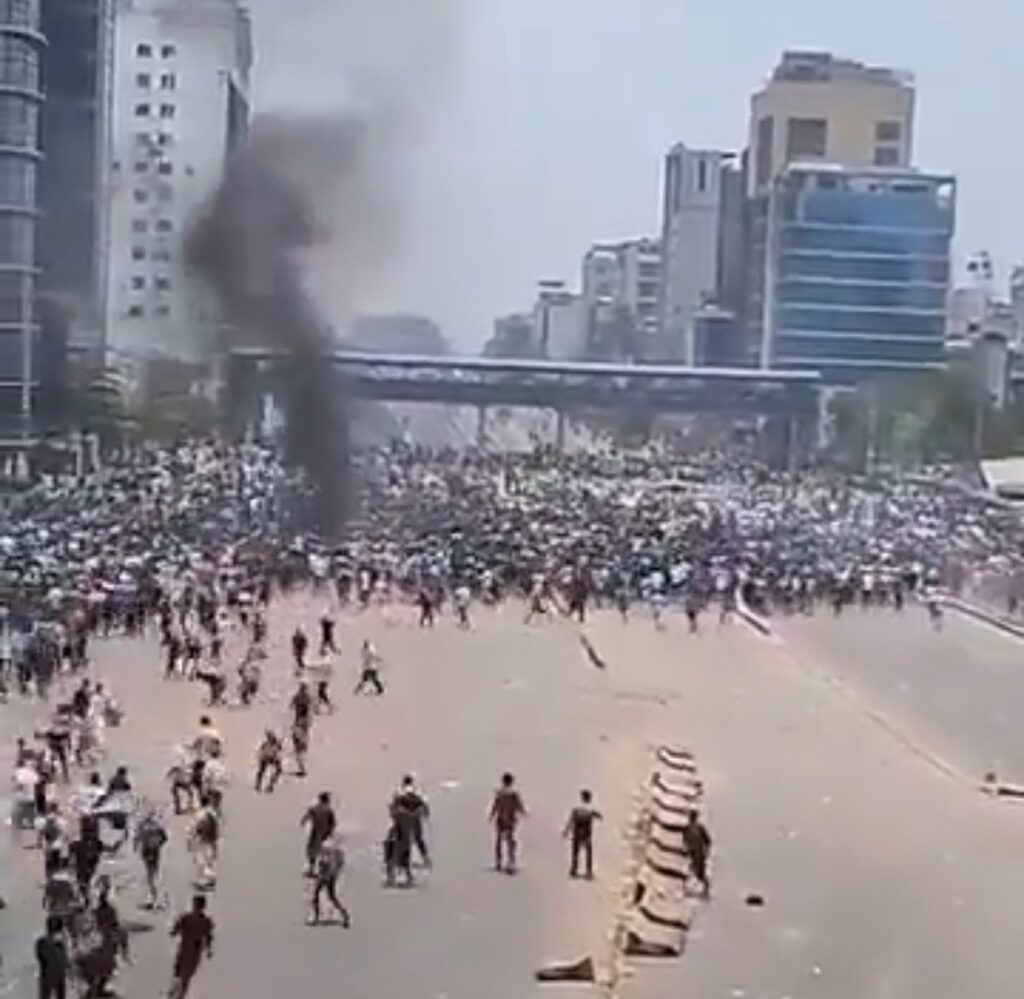Protests continue to gain momentum across Bangladesh as thousands of citizens take to the streets to voice their dissatisfaction with the current government.
The demonstrations, sparked by widespread allegations of corruption, economic mismanagement, and a lack of transparency, have brought together people from diverse backgrounds.
Students, professionals, and laborers alike have united in their call for significant reforms and greater accountability from their leaders.
The unrest has been particularly intense in major cities like Dhaka and Chittagong, where large crowds have gathered in public squares and outside government buildings.
Protesters have been carrying banners, chanting slogans, and using social media to mobilize support and share their grievances.
The government’s response has been a mix of promises for dialogue and attempts to disperse crowds using law enforcement, leading to clashes and arrests.
Economic struggles have exacerbated the public’s frustration, as inflation and unemployment rates continue to rise.
Many protesters argue that the government’s policies have favored the wealthy and powerful while neglecting the needs of ordinary citizens.
There is also a growing concern about the erosion of democratic institutions and the perceived lack of respect for human rights, further fueling the discontent.
In response to the protests, several opposition parties and civil society groups have called for a national dialogue to address the pressing issues facing the country.
However, the government’s willingness to engage in meaningful discussions remains uncertain.
As the protests show no signs of waning, the coming days will be crucial in determining the future political landscape of Bangladesh.


